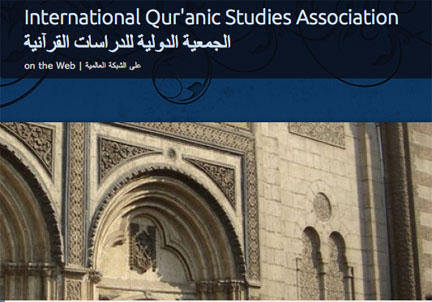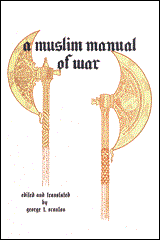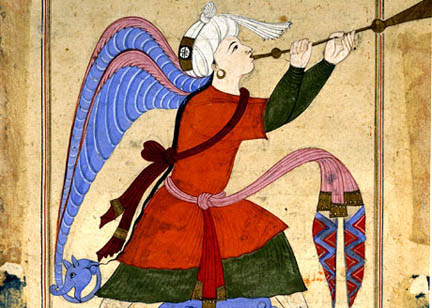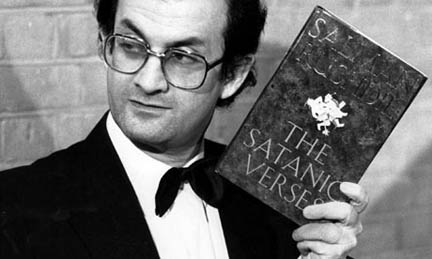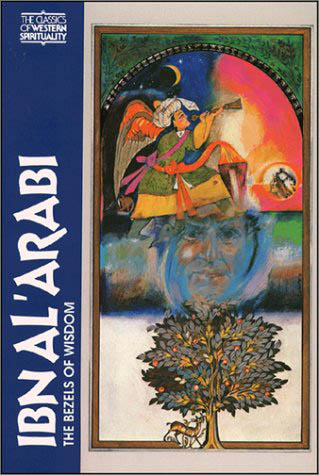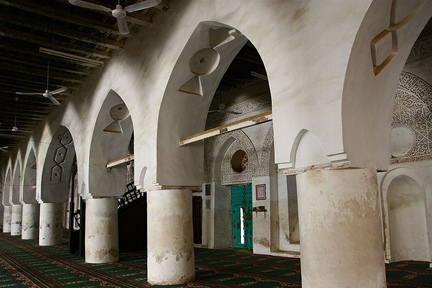
Zabid mosque interior; Photograph by Eric Lafforgue
مدير مرگز المخطوطات ÙÙŠ زبيلـ
هناك سبعة آلا٠مخطوطة ÙÙŠ زبيد!
الجمعة 25 يناير-كانون الثاني 2013 الساعة 01 صباØاً / الجمهورية نت – توÙيق Øسن أغا
لم يتبق لمدينة زبيد التاريخية إلا أربعة أشهر من المهلة التي منØت لها من قبل لجنة التراث العالمي التابعة لمنظمة الثقاÙØ© والعلوم (اليونسكو) إما أن تطمس أو تكون ÙÙŠ قائمة التراث العالمي؛ ومنذ عام 2007 وزبيد بين مد وجزر وكلما تنÙست الصعداء وجدت Ø£Øدا ينغصها ويباعدها عن بلوغ بوابة التراث العالمي، كلما اقتربت من البقاء ÙÙŠ هذه القائمة التي كتبت Ùيها زبيد عبارة دون بقاء منذ عام 1993Ù… ØŒ ومن هذا التنÙس وجدت هذه المدينة عام 2007 من مبنى دار الضياÙØ© رÙاً وجدته Øينها هو المكان المناسب Ù„ØÙظ ما تمتلكه من مخطوطات، ولكن عندما وجدت ضالتها ÙÙŠ هذا المكان وجدت من يطمع بأخذ هذه الدار من يدها ليهدم ما بنته “ زبيد†ÙÙŠ ساعة زمن
الجمهورية كانت ÙÙŠ اليومين الماضيين ÙÙŠ أروقة دار الضياÙØ© سابقا ومركز المخطوطات Øالياً، وبعد أن رأت العجب العجاب Øول ما يدور Øول هذا المبنى والذي إذا قدر الله وتØول إلى مكتب أوسكن أو لمصلØØ© أخرى عما هو عليه كمركز مخطوطات ستكون واقعة أخرى لن تتØملها مدينة زبيد التاريخية، ولمزيد من التÙاصيل التقت (الجمهورية) الأستاذ عرÙات الØضرمي Ù€ مدير مركز المخطوطات ÙÙŠ مديرية زبيد وأجرت مع الØوار التالي..
من يكسب..؟!
بداية كي٠تØدثنا عن هذه الخلÙية التي تم Ùيها التزامن ÙÙŠ اختيار دار الضياÙØ© وتØويله كمركز للمخطوطات؟
Continue reading 7000 Manuscripts in Zabid

